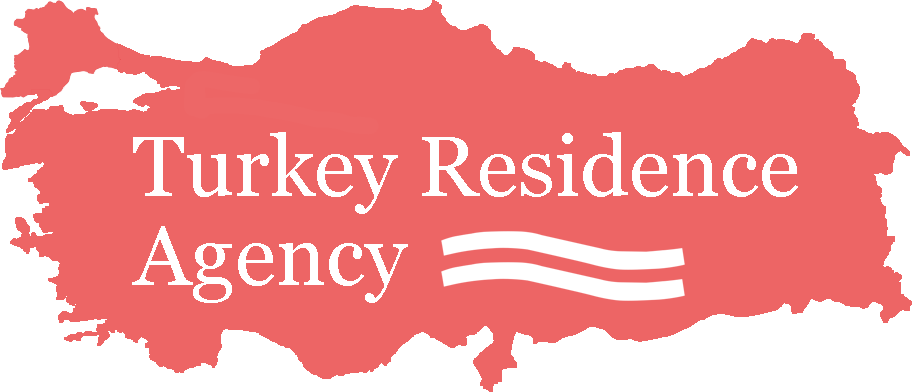Unexpected Costs of Living as a Resident in Turkey
Navigating the intricate tapestry of cultural vibrancy and historical richness, residents of Turkey are intimately acquainted with the allure this nation offers. However, beneath the surface of its enchanting landscapes and bustling bazaars lie veiled financial realities that expatriates and locals alike must contend with. The unexpected costs of living in Turkey can be as varied and complex as its storied past. From fluctuating inflation rates to hidden housing expenses, and from healthcare nuances to the subtleties of transportation economics, these unforeseen financial demands call for a meticulous and informed approach to daily life. As the cost of living subtly climbs against the backdrop of a dynamically evolving economy, understanding these monetary subtleties becomes paramount for those seeking to make Turkey their home. This introduction will delve into the unanticipated financial obligations that shape the cost of living in Turkey, offering a lens through which to view the potential economic challenges and considerations that underpin the experience of residency in this captivating nation.
Navigating the Hidden Expenses
Amidst the allure of its warm Mediterranean climate and delectable cuisine, Turkey’s hidden expenses often catch new residents off guard. Those envisioning a life cushioned by the relatively low cost of basic goods may find their budgets blindsided by the steep utility costs that spike during the peak of summer and winter, with air conditioning and heating becoming substantial financial burdens. Furthermore, while rent prices vary across cities, the associated fees—such as realtor commissions typically amounting to one month’s rent and, at times, unexpected maintenance costs not covered by landlords—can swiftly escalate initial housing budgets. These silent financial pressures require residents to maintain a keen awareness of consumption and an acute readiness for the ancillary costs embedded within the necessities of a comfortable living.
Additionally, navigating the complexities of health care in Turkey presents another layer of hidden expenses that can confound both expatriates and locals. While Turkey offers universal healthcare to its citizens and residents, foreigners often opt for private health insurance to access a broader range of services and facilities, which can be a significant unforeseen expense. Moreover, prescription medications, which are sometimes only partially covered by insurance plans, along with dental and optical services that frequently require out-of-pocket payment, add to the healthcare costs that can accumulate stealthily. Expensive medical emergencies or specialized treatments that are not fully covered by insurance policies can further strain one’s finances, highlighting the importance of thorough health coverage as an integral yet often underestimated aspect of financial planning when residing in Turkey.
Transport within Turkey’s bustling cities and across its rugged terrain is an area where expenses quickly mount, particularly for those unaccustomed to the local transit systems. Private car ownership comes with a hefty price tag not only due to high purchase taxes but also because of soaring fuel costs and occasional toll fees when journeying between regions. Residents who rely on public transportation may initially celebrate its affordability, but costs accrue when factoring in multiple daily commutes, the use of various transit modes, and the non-trivial fares for intercity travel. Even something as simple as reliance on taxis can lead to an underestimation of living expenses, especially when those metered trips become a regular part of daily routines or late-night travels. Successful financial navigation in Turkey requires a judicious approach to mobility and an appreciation for the intricate dance between convenience, cost, and the rich tapestry of travel options available.
Financial Pitfalls in Turkish Residency
One of the more insidious financial pitfalls that ensnare residents in Turkey is the capricious nature of inflation and its impact on daily expenses. Even for the most financially astute, the Turkish economy can pose a significant challenge with its tendency towards abrupt fluctuations. Inflation rates have risen considerably, leading to an increase in the cost of basic goods and services that far outstrip the wage growth or pension adjustments. This means that expats and long-term residents must both strategically manage their budgets and continually reassess their spending to keep pace with the ever-changing value of the Turkish Lira. What’s more, newcomers may find themselves grappling with an opaque pricing system, where the cost of identical items can vary dramatically between neighborhoods, adding an element of unpredictability to their fiscal adjustments.
Another often overlooked financial burden arises from the complexities embedded within the Turkish rental market. Accommodation expenses, while initially seeming reasonable, can cascade into a series of hidden costs that catch many residents off-guard. Security deposits and utility set-up fees may be expected, but less anticipated are the occasional demands for ‘key money’—a non-refundable payment to landlords or preceding tenants, a practice not legally sanctioned but still occasionally encountered. Moreover, rental contracts may include clauses for annual rent increases pegged at rates above inflation, and without a keen eye, expatriates might unknowingly commit to lease terms that lead to disproportionate escalations in living costs over time. Even day-to-day home maintenance can present its own set of surprises, with repair works and services frequently billed at a premium, especially in expat-favored districts, compounding the financial pressures of domestic life in Turkey.
Furthermore, healthcare expenditures present a convoluted web of costs that demand attention. Residents are required to have health insurance, either through private plans or the national scheme, SGK, but coverage gaps can result in steep out-of-pocket payments for treatments and medications that are not fully subsidized. Expatriates, in particular, may find themselves negotiating a labyrinthine system where certain health services and facilities offer standards at par with private insurance rates – unexpectedly inflating their healthcare budget. Additionally, even with insurance, payment is often required upfront, followed by a reimbursement process that can be both time-consuming and uncertain. This health-related financial wildcard adds an additional layer of unpredictability to the already complex fiscal landscape faced by those living in Turkey, where an unforeseen illness or accident can lead to a sudden financial burden.
The Unseen Economic Challenges in Turkey
Delving into the concealed intricacies of Turkey’s economy, residents often find themselves contending with more than just the price of a Turkish delight in the Grand Bazaar. The unseen economic challenges start with inflation, which has been known to surge unexpectedly, causing everyday items to fluctuate in price from one month to the next. The ripple effects of inflation extend to groceries, utilities, and even leisure activities, steeply eroding purchasing power. This unpredictability makes budgeting a challenging exercise, often leading to a jarring realization that salaries and savings may not stretch as far as anticipated. Coupled with relatively high import taxes that inflate the cost of foreign goods, individuals can find themselves making tough decisions about what are considered necessities versus luxuries. The situation demands a strategic approach to finance management, one that requires residents to stay informed about economic forecasts and adjust their spending habits accordingly.
In addition to inflation’s sting, the less obvious costs like housing can deliver a financial blow to the unwary. Renting a property often involves hidden fees that go beyond the standard deposit and monthly payments. Commission fees for real estate agents, maintenance dues for condominiums, and sometimes even ‘goodwill’ money—a non-refundable payment to landlords—are not always clear upfront. The purchase of property, while seemingly a one-time expense, comes with its own set of surprises, including a substantial property tax, earthquake insurance mandated by law, and occasionally perplexing utility connection charges. For expatriates, the dream of a Mediterranean view or a home in the cultural heart of Istanbul can rapidly transform into an intricate dance with bureaucracy and unforeseen expenses, challenging even the most meticulous financial planners.
Lastly, healthcare in Turkey presents its own assortment of financial quandaries. While public healthcare is available, many opt for private health insurance to bypass long wait times and gain access to a broader range of services. However, this choice comes at a premium, one that can escalate with the need for specialized treatments or unforeseen medical emergencies. Pharmaceuticals and certain medical procedures, not fully covered by insurance plans, can dig into budgets unexpectedly. Additionally, retirees and those with chronic conditions must grapple with the cost of continuous care, which can be dramatically higher than in their home countries. This facet of economic life in Turkey underscores the importance of a robust contingency plan and highlights the critical need for a comprehensive understanding of one’s health coverage to mitigate the impact of these covert healthcare expenses.






